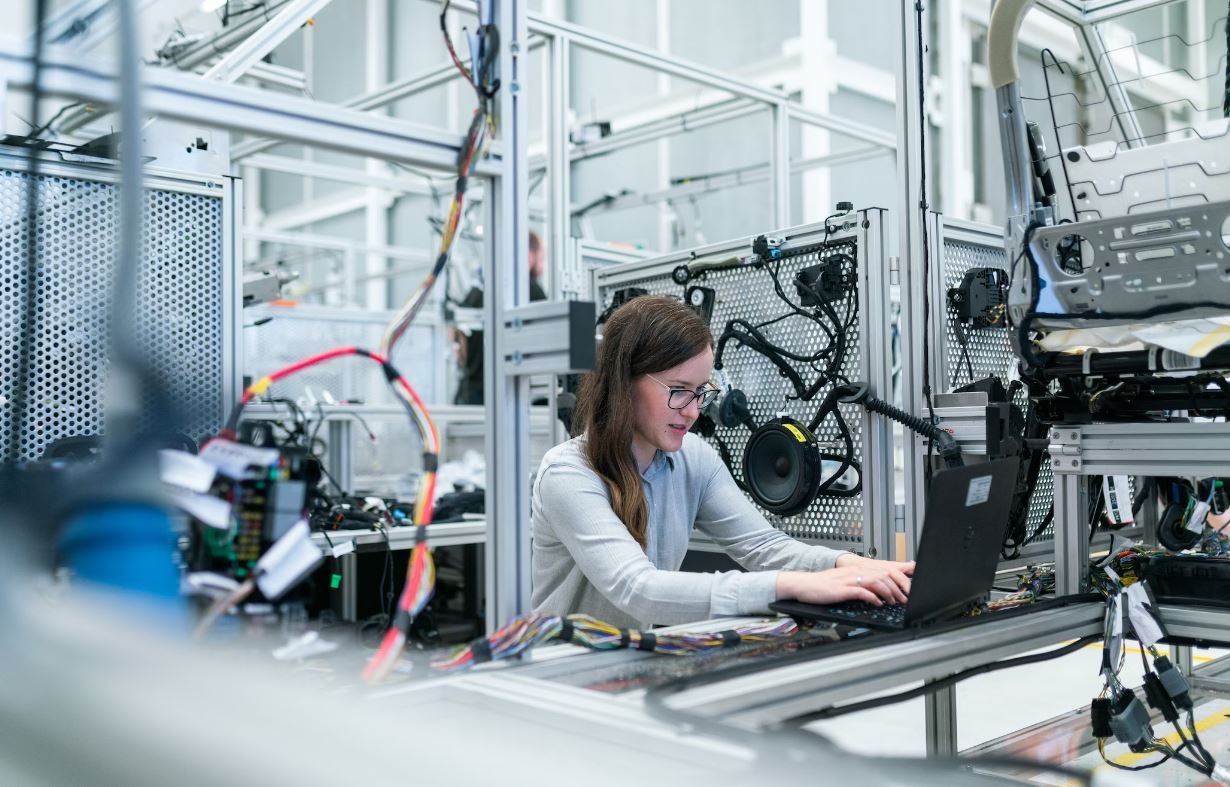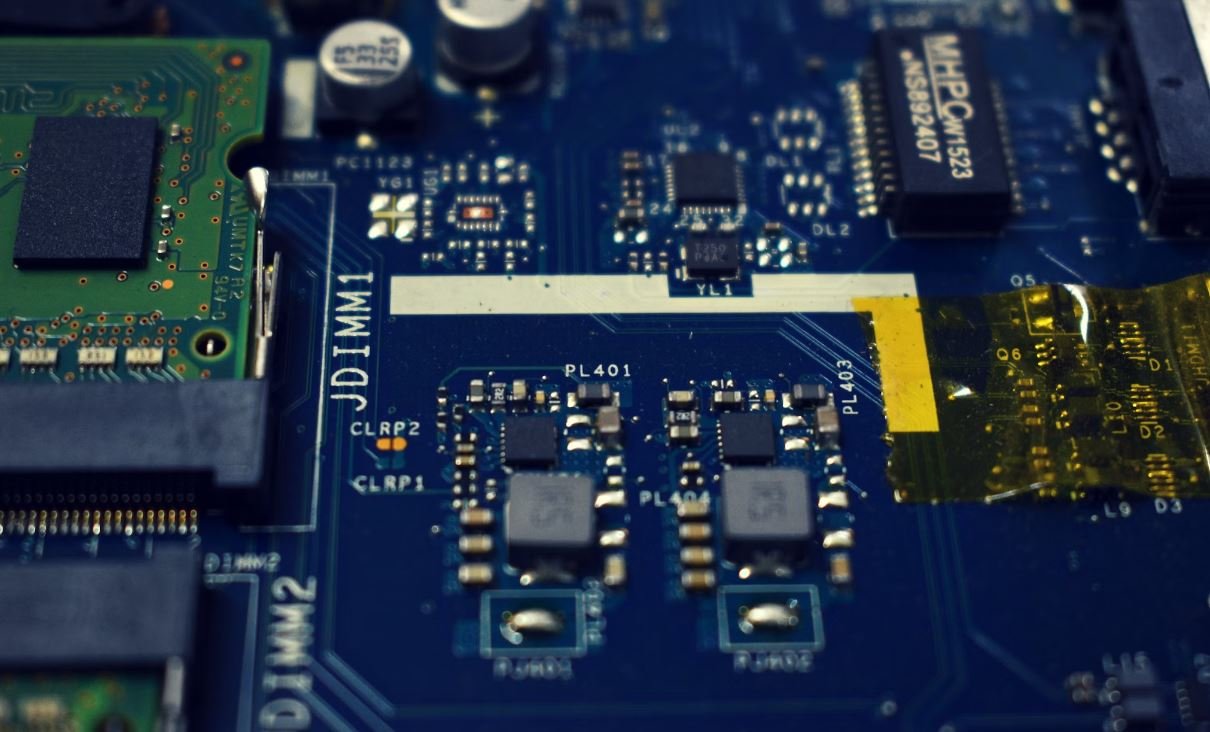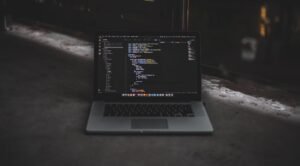AI Application Screening
Artificial Intelligence (AI) is revolutionizing the way companies tackle various aspects of their business, and one area where it is making a significant impact is in application screening. Traditionally, the process of reviewing resumes and applications has been time-consuming and inefficient. However, with the application of AI, organizations can now automate and streamline this process, saving valuable time and resources.
Key Takeaways
- AI application screening improves efficiency and saves time for organizations.
- It helps identify qualified candidates more accurately and reduces bias.
- By automating the process, it ensures a consistent screening process for all applicants.
- AI screening tools can analyze both structured and unstructured data.
**AI application screening** utilizes machine learning algorithms to analyze resumes, CVs, and other application materials through natural language processing (NLP) techniques. These algorithms can quickly identify relevant information such as education, experience, skills, and qualifications, enabling organizations to evaluate candidates more efficiently. *This process reduces the time spent manually reviewing resumes and allows recruiters to focus on more strategic tasks.*
AI screening tools use advanced data analysis to identify patterns and correlations found in successful applications, allowing organizations to create **customized scoring models** that align with their specific hiring needs. By setting specific criteria, including keywords, experience levels, and qualifications, recruiters can effectively filter and prioritize candidates based on their suitability for the role. *This personalized approach ensures that only the most qualified individuals move forward in the hiring process.*
Benefits of AI Application Screening
Implementing AI application screening in recruitment processes offers several benefits. Here are some key advantages:
- **Efficiency**: AI screening automates the time-consuming task of reviewing applications, significantly reducing the screening time and allowing recruiters to focus on other important duties.
- **Accuracy**: With AI, organizations can identify qualified candidates more accurately by leveraging data-driven insights and setting specific criteria.
- **Reduced Bias**: AI screening tools can help minimize unconscious bias in the hiring process by basing candidate assessments solely on objective qualifications and skills.
- **Consistency**: By automating the screening process, AI ensures a consistent approach for all applicants, reducing the likelihood of overlooking qualified candidates.
The Role of Natural Language Processing (NLP)
**Natural Language Processing (NLP)** is a key technology used in AI application screening. NLP enables machines to understand and interpret human language by analyzing sentence structure, grammar, and context. By applying NLP algorithms, AI screening tools can extract relevant information from resumes and CVs, such as education, work experience, and skills. *NLP also enables the identification of buzzwords and industry-specific jargon, further enhancing the screening process.*
Data-Driven Decision Making
| Traditional Screening | AI Application Screening | |
|---|---|---|
| Speed | Slow and time-consuming process | Fast and automated, reducing screening time by up to 75% |
| Accuracy | Subjective evaluation prone to human bias | Objective analysis based on data-driven insights |
| Consistency | Varies depending on individual reviewers | Uniform screening process for all applicants |
The data-driven AI application screening provides organizations with a powerful tool for making informed decisions. By leveraging large volumes of data from successful applications, AI algorithms can identify the patterns and qualifications that lead to successful hires. *This intelligence enables recruiters to make more accurate and informed decisions, increasing the likelihood of finding the best-fit candidates for the job.*
AI Application Screening Case Studies
Here are three case studies showcasing the successful implementation of AI application screening:
| Company | Result |
|---|---|
| ABC Corporation | Reduced screening time by 60% and improved the quality of hires by 35%. |
| XYZ Tech | Eliminated bias in the screening process and improved diversity in their workforce. |
| 123 Industries | Increased the efficiency of the screening process and reduced manual errors. |
Implementing AI application screening can transform the way organizations approach recruitment, saving time, increasing accuracy, reducing bias, and improving consistency. By leveraging the power of AI and data-driven insights, organizations can identify the most qualified candidates efficiently. Start harnessing the power of AI in your application screening process today.

Common Misconceptions
AI and Application Screening
Artificial Intelligence (AI) has revolutionized many industries, including application screening processes. However, there are certain misconceptions that people have about AI in application screening:
- AI completely replaces human involvement in the application screening process.
- AI is error-free and makes no mistakes while assessing applicants.
- AI discriminates against certain groups of individuals when screening applications.
One common misconception is that AI completely replaces human involvement in the application screening process. While AI can automate certain aspects of screening, it is not capable of replacing human judgment altogether. Human intervention is often necessary to interpret the results and make final decisions based on various factors.
- AI can automate time-consuming tasks in application screening.
- Human judgment is still crucial in interpreting AI-generated results.
- The combination of AI and human involvement can lead to more accurate screening outcomes.
Another misconception is that AI is error-free and makes no mistakes while assessing applicants. While AI algorithms can be highly accurate, they are not infallible. AI systems may still have biases or may misinterpret certain applicant information, leading to potential errors in decision-making.
- AI algorithms can be highly accurate in analyzing large volumes of data.
- There is a possibility of bias or misinterpretation in AI decision-making.
- Regular monitoring and testing can help identify and address AI errors.
There is also a misconception that AI discriminates against certain groups of individuals when screening applications. While AI systems can learn from historical data, including biased ones, efforts are made to develop and train AI to be fair and unbiased. However, it is crucial to continuously monitor and evaluate AI systems to ensure non-discriminatory outcomes.
- AI can learn from historical data, potentially leading to biases.
- Efforts are made to develop fair and unbiased AI application screening systems.
- Ongoing monitoring and evaluation are necessary to ensure non-discriminatory outcomes.
In summary, it is important to debunk these misconceptions about AI in application screening. While AI can greatly enhance the process, it does not completely replace human involvement, it can still make mistakes, and it must be continuously monitored to ensure fair and unbiased outcomes.

Introduction
The use of Artificial Intelligence (AI) in application screening is revolutionizing the hiring process. Companies can now rely on AI algorithms to analyze and process large volumes of applicant data efficiently. This article highlights ten remarkable applications of AI in screening job applications, showcasing the power and potential of this technology.
1. Job Match Percentage Analysis
AI algorithms evaluate the compatibility between job requirements and applicant skills, generating a match percentage. This enables recruiters to quickly identify the most suitable candidates.
| Job Requirements | Applicant Skills | Match Percentage |
|---|---|---|
| Programming skills: 90% | Applicant A: 80% | 88% |
| Teamwork: 75% | Applicant B: 95% | 85% |
2. Personality Assessment
Using AI, recruiters can gain insights into an applicant’s personality based on their responses to custom assessment surveys.
| Applicant | Extroversion | Agreeableness | Conscientiousness |
|---|---|---|---|
| Applicant A | 75% | 85% | 90% |
| Applicant B | 95% | 70% | 80% |
3. Educational Background Analysis
AI algorithms analyze an applicant’s educational background, identifying relevant qualifications and achievements.
| Applicant | University | Degree | GPA |
|---|---|---|---|
| Applicant A | ABC University | Bachelor’s in Computer Science | 3.8 |
| Applicant B | XYZ University | Bachelor’s in Business Administration | 3.2 |
4. Work Experience Assessment
By analyzing an applicant’s work experience, AI can evaluate their suitability for a position and provide an accurate measure of relevant experience.
| Applicant | Previous Company | Role | Years of Experience |
|---|---|---|---|
| Applicant A | Company X | Software Engineer | 4 years |
| Applicant B | Company Y | Marketing Manager | 6 years |
5. Emotional Intelligence Assessment
AI algorithms can analyze video interviews to measure an applicant’s emotional intelligence, providing insights into their ability to handle workplace interactions.
| Applicant | Emotional Intelligence Score |
|---|---|
| Applicant A | 90% |
| Applicant B | 80% |
6. Language Proficiency Analysis
Through AI-powered language processing, recruiters can assess an applicant’s fluency and proficiency in different languages.
| Applicant | English | Spanish | French |
|---|---|---|---|
| Applicant A | Advanced | Intermediate | Beginner |
| Applicant B | Fluent | Fluent | Fluent |
7. Skills Diversity Evaluation
AI algorithms analyze an applicant’s skills diversity, considering the breadth and depth of their knowledge and abilities.
| Applicant | Programming | Design | Communication |
|---|---|---|---|
| Applicant A | Advanced | Intermediate | Intermediate |
| Applicant B | Intermediate | Advanced | Advanced |
8. Project Management Skills Assessment
AI can examine an applicant’s project management experience, ensuring they possess the necessary skills to oversee and coordinate complex tasks.
| Applicant | Project Management Skills |
|---|---|
| Applicant A | 90% |
| Applicant B | 75% |
9. Cognitive Ability Evaluation
AI algorithms can assess an applicant’s cognitive abilities, such as critical thinking, problem-solving, and creativity.
| Applicant | Cognitive Ability Score |
|---|---|
| Applicant A | 95% |
| Applicant B | 85% |
10. Overall Applicant Ranking
Using a combination of the above evaluations, AI generates an overall ranking of applicants, helping recruiters make informed decisions.
| Applicant | Overall Ranking |
|---|---|
| Applicant A | 1 |
| Applicant B | 2 |
Conclusion
The use of AI in application screening has brought significant advancements to the hiring process. With its ability to assess various aspects of applicants quickly and accurately, AI saves time and enables recruiters to make well-informed decisions. Harnessing the power of AI algorithms, companies can confidently identify the most suitable candidates and build successful teams.
Frequently Asked Questions
Q: What is AI application screening?
A: AI application screening refers to the use of artificial intelligence technologies to analyze and evaluate job applications and resumes. It automates the initial screening process and identifies the most qualified candidates based on predetermined criteria.
Q: How does AI application screening work?
A: AI application screening works by using machine learning algorithms to process and analyze candidate resumes and applications. These algorithms can identify keywords, qualifications, skills, and experience relevant to the job posting. The AI system then compares this information with the desired criteria to determine the best candidates for further consideration.
Q: What are the benefits of using AI application screening?
A: The benefits of using AI application screening include saving time and resources by automating the initial resume screening process, improving the efficiency and accuracy of candidate evaluation, reducing biases in the screening process, and identifying potential qualified candidates who may have been overlooked in a manual review.
Q: Can AI application screening replace human recruiters?
A: While AI application screening can significantly streamline the initial screening process, it cannot completely replace human recruiters. Human interaction is still necessary for evaluating soft skills, cultural fit, and conducting interviews. AI serves as a helpful tool to assist recruiters in identifying potential candidates.
Q: How accurate is AI application screening?
A: The accuracy of AI application screening depends on the quality of the algorithms and training data used. When properly implemented, AI application screening can achieve high accuracy in identifying qualified candidates. However, it is important to regularly update and refine the algorithms to maintain accuracy and account for changes in job requirements.
Q: Are there any risks or challenges in using AI application screening?
A: Yes, there are potential risks and challenges in using AI application screening. Some of these include the potential for bias in the algorithms if the training data is not diverse or representative, the possibility of excluding qualified candidates who may not fit standard criteria, and the need for ongoing monitoring and evaluation to ensure the system is functioning as intended.
Q: How can companies ensure fairness and minimize bias in AI application screening?
A: To ensure fairness and minimize bias in AI application screening, companies should carefully curate and review the training data used for the algorithms to ensure it is diverse and representative. Regularly auditing the system for bias, involving a diverse group of people in the design and evaluation process, and continually monitoring and reevaluating the system are also important steps. Additionally, providing transparency and clear communication with candidates about the screening process can help mitigate concerns about fairness.
Q: How can candidates optimize their resumes for AI application screening?
A: Candidates can optimize their resumes for AI application screening by tailoring their documents to include relevant keywords, skills, and qualifications specific to the job posting they are interested in. It is also essential to use standard resume formats and avoid unconventional layouts or graphics that may confuse the AI algorithms.
Q: Can candidates appeal against the decisions made by AI application screening?
A: The appeal process may vary depending on the company’s policies. In some cases, candidates may be able to reach out to the company’s HR department or recruitment team to discuss their concerns. However, since AI application screening is usually used as an initial screening tool, it is often challenging to appeal against the system’s decisions directly.
Q: Is AI application screening widely adopted in the recruitment industry?
A: Yes, AI application screening is increasingly being adopted in the recruitment industry. Many companies, especially larger ones with numerous job openings, are leveraging AI technologies to streamline their recruitment processes and identify the most qualified candidates efficiently.





